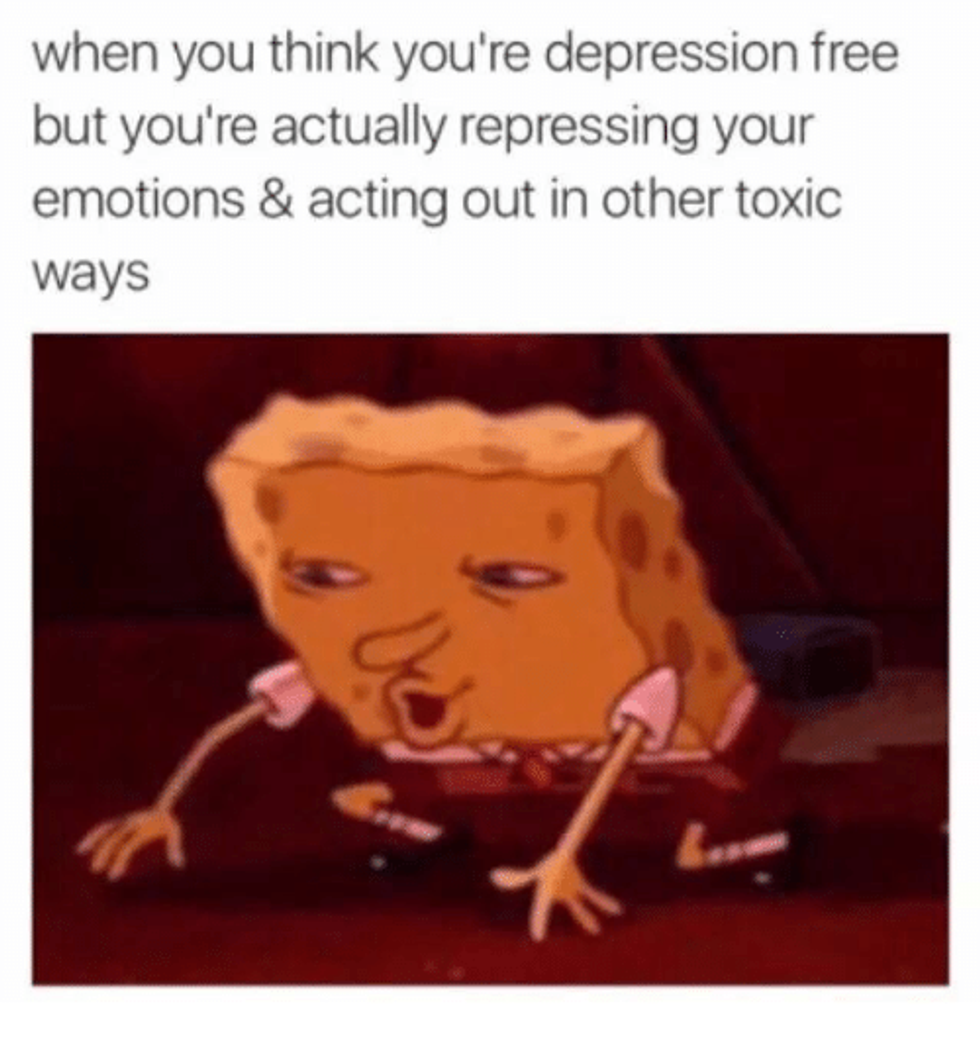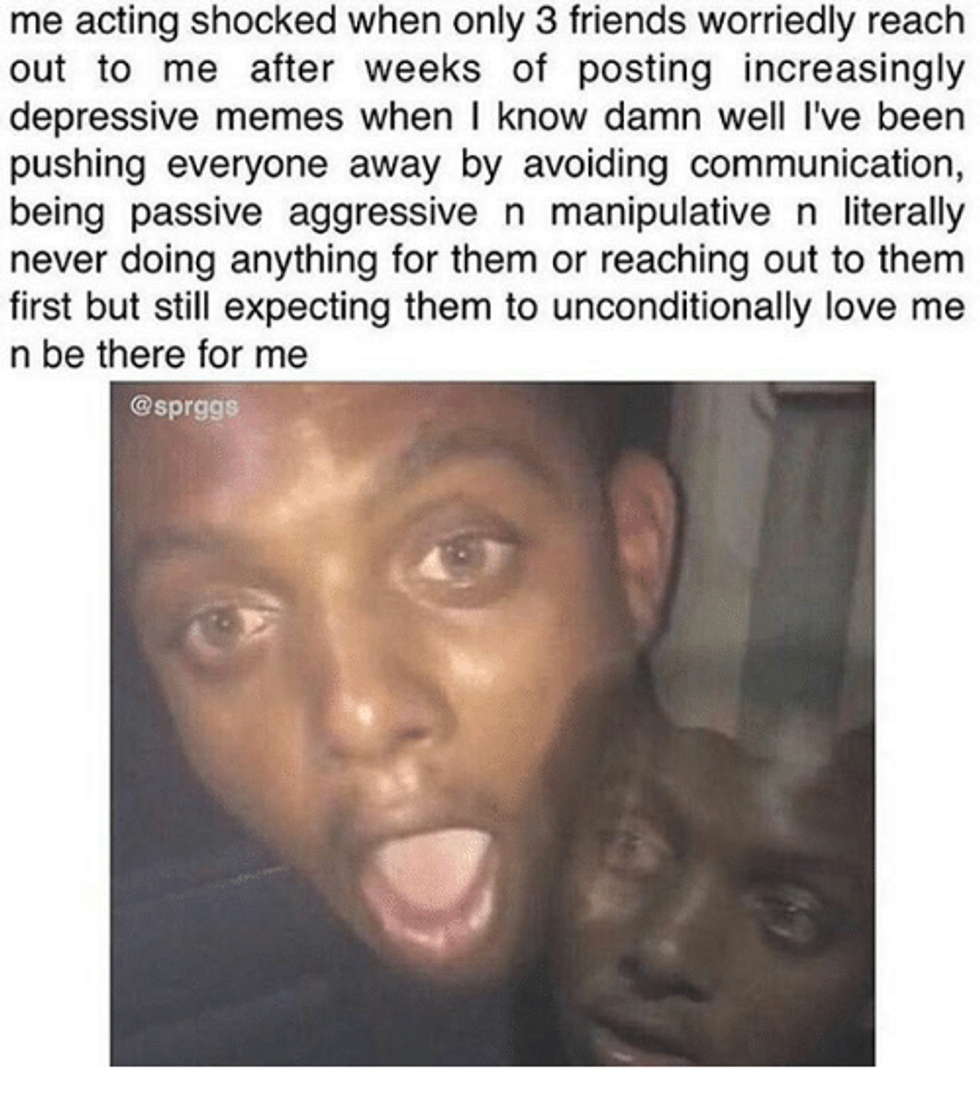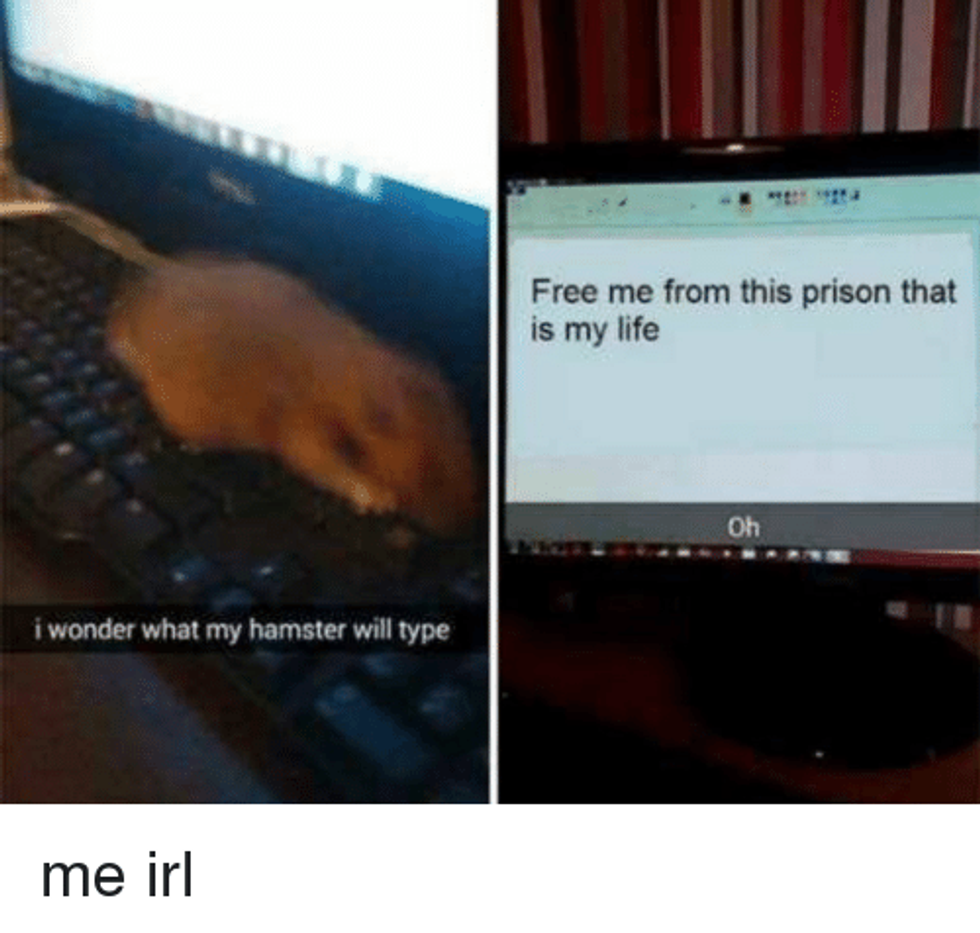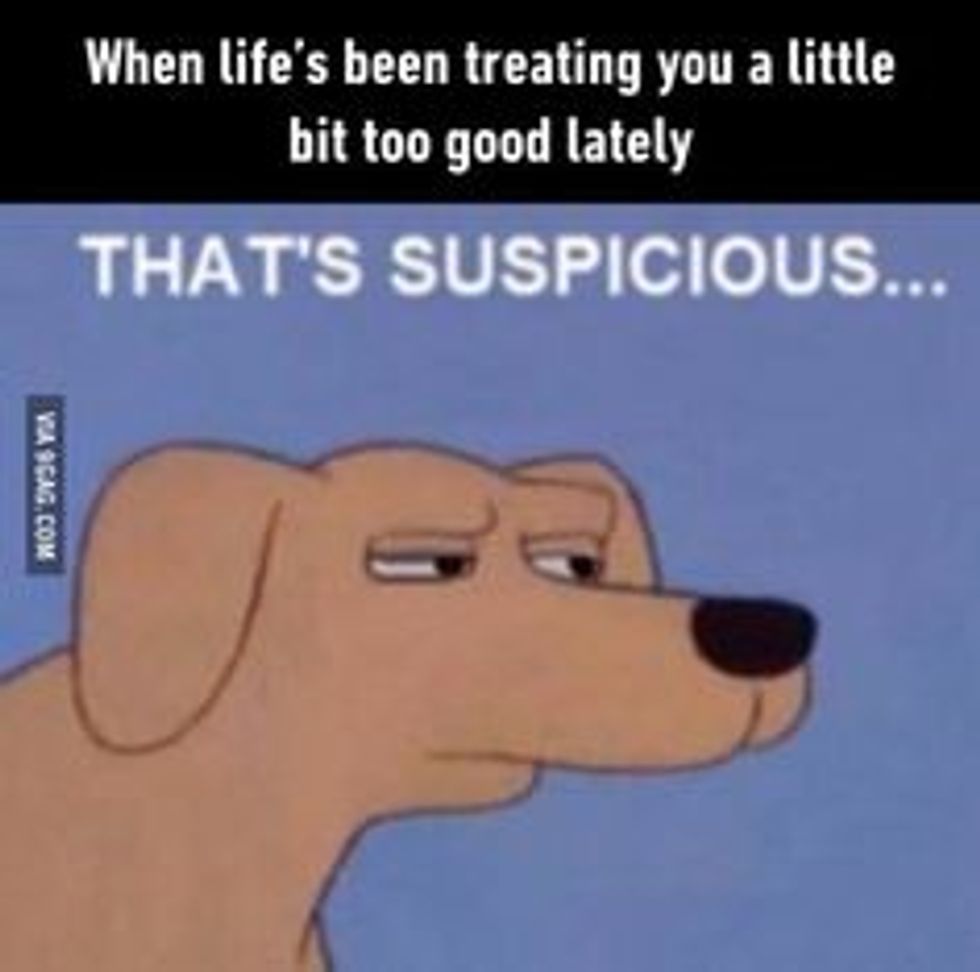I've been struggling with depression since I was about 10 years old.
My diagnosis has ranged from major depression (or as my then therapist put it, "pretty serious depression") to dysthymia, which is my current diagnosis. Dysthymia is a constant, lower level of depression that you have to exhibit symptoms of for two years before you can even be diagnosed.
However, just because this is a lower level of depression doesn't mean that it can't develop into bouts of deep depression at times.
This constant cycle is something I deal with every day, every month, every year, but you wouldn't always know it. I see a lot of myths and misconceptions about depression in the media, on the internet, and from people close to me.
So, I am starting a monthly series in which, at the end of the month, I describe what depression looked like for me. Now, I recognize that depression looks different for everyone, but perhaps a factual account of what day to day depression can look like will help in decreasing the romanticizing and stigmatizing of this illness just a little bit. This is what depression looked like for me in May of 2017.
In May, depression looked like a lot of naps. While depression can cause insomnia, my depression causes me to sleep in excess. I can take about three naps a day. It's my way of disassociating from the world around me, so I won't have to deal with anything. It's one of the first ways that I know my depression is looming when I start sleeping even when I'm not tired.
In May, my depression was made worse by boredom. For someone who never wants to do anything, not having anything to do is the fastest way to destroy my mental health. If I don't have something to think about or plan for, then I have a lot of time to be really self-destructive.
I wonder why my high school friends are hanging out without me. Something must be wrong with me. Let's obsessively read through old texts from four years ago trying to figure out where it all went wrong. Let's lay around in bed until your back hurts from being in one position for too long trying to figure out why no one likes you and why no one seems to value you at all.
To fix this I've taken up cross-stitching vaguely lewd sayings surrounded by decorative borders. There's something very satisfying about stabbing fabric hundreds of times in a productive way.
In May, depression invited it's BFF, anxiety, over for the summer. This has left me with a racing heart and brain every night as I remember that another day has gone by, and I am another day closer to death with nothing to show for it.
Anxiety tells me that I should be doing something, and depression tells me that it is much easier to do nothing. Anxiety looks like a pang in my heart and stomach every time I go out on a social engagement because I can't control what is about to happen, and I'm worried what people will think when they see I've gained a few pounds. It's easier to just stay inside, but I long to be outside.
In May, depression looked like sadness and fear. May comes with a lot of endings, and a lot of markers of time passing: finals, graduations, moving. I'm really afraid of death, so anything that reminds me that things are moving forward without my consent (like graduations) are terrifying and saddening. However, I don't always realize this consciously, so sometimes I'll just be sad or apathetic, seemingly for no reason; inside I know that time is passing me by and I have no control over it. I am a victim of time.
In May, coping looked like playing a lot of Candy Crush, doing crafts (specifically, knitting the hat Cole Spouse wears in Riverdale), and exercising every day. I find mindless, repetitive games, like Candy Crush, really helpful for quelling the destructive thoughts. I also give myself a little routine, even though I have no plans.
I go to the gym. I watch Jeopardy every day at 7:30. I wake up at the same time. I feed the dogs. I keep myself alive. I also cope by talking about how I feel. I'm open with when I'm anxious or apathetic. People can't help you if they don't know you need it, and you are worth being helped. I know that.
Fortunately, my depression is on the upswing. I am feeling genuinely happy. I am looking forward to things. I am excited for new opportunities that are coming my way. I am taking my meds every day. I am refusing to isolate myself. I am thriving with depression.
See you in June!























